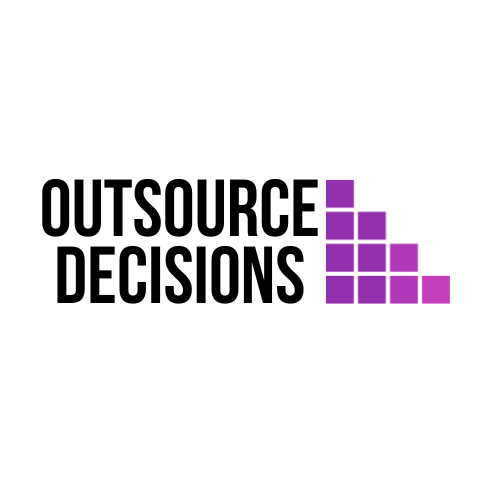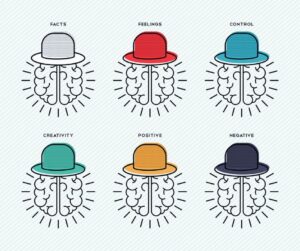Have you ever faced a major life decision and found yourself torn between the rational voice in your head and the powerful emotions in your heart?
This internal conflict plagues us all at various points. Logic demands we make calculated, pragmatic choices. Yet our feelings often pull us in a completely different direction.
So which should you listen to – your head or your heart?
The answer, as you’ll see, is more nuanced than simply picking one over the other.
The Head vs. Heart Dilemma
From life-altering career moves to romantic relationships, we constantly face decisions where logic and emotion seem to contradict each other.
Do you take the high-paying corporate job that could make you miserable, or the lower-paying but deeply fulfilling role? Do you stay in a comfortable but unfulfilling relationship, or take a leap into the unknown with someone you have an intense connection with?
These dilemmas highlight the ancient head vs. heart conflict that philosophers have grappled with for millennia. Each side offers compelling arguments when making tough choices:
The Head: Rational thinking shields us from rash, emotionally driven decisions that we may later regret. A logical approach forces us to carefully weigh pros and cons.
The Heart: Emotions and intuitions can’t be ignored – they’re a core part of our human experience. Listening to our heart’s calling ensures we live authentically.
So which side should win out? Let’s delve deeper into each perspective.
Understanding the Head: Logic and Reason
The head represents the rational, calculating part of our mind. When we “think with our head,” we:
- Analyze situations objectively with facts and data
- Rely on logic, reason, and pragmatism
- Prioritize measurable results over subjective feelings
- Minimize risks by choosing predictable options
- Make decisions deliberately through conscious thought
“Reason is the natural order of truth; but imagination is the organ of meaning.” – C.S. Lewis
Those who mainly follow their head tend to be excellent strategic thinkers, skilled at separating emotions from objective analysis. Their decisions create stability, following a cognitive and linear approach.
Grasping the Heart: Emotion and Intuition
In contrast, the heart represents the emotional, intuitive side of our psyche. When we “follow our heart,” we:
- Tune into our feelings, values, and inner voice
- Rely on gut instincts, even without hard evidence
- Prioritize fulfillment and passion over pure pragmatism
- Take leaps into the unknown, being open to uncertainty
- Make decisions that simply “feel right” in the moment
“Have the courage to follow your heart and intuition. They somehow already know what you truly want to become.” – Steve Jobs
Those guided by the heart often see life as a journey of self-discovery and meaning. Their choices create authenticity by honoring their deepest callings and principles.
Striking the Right Balance
Most experts agree that for optimal decision-making, we need to balance the head and the heart:
Finding the ideal equilibrium between logic and emotion leads to wise choices.
Relying solely on the rational head can cause us to lose touch with our core values and miss opportunities for growth. But being guided purely by the heart’s whims often breeds impulsivity and regret.
The key is leveraging the strengths of both:
- Use logic and analysis to gather facts and perspectives (head)
- But also tune into your deeper feelings and intuition (heart)
By synthesizing the head and heart harmoniously, we make grounded yet fulfilling choices aligned with our greatest potential.
Examples of Head vs. Heart Decisions
To illustrate this concept, let’s look at some common scenarios where the head and heart clash:
Career Changes:
- Head: Staying in a stable but unfulfilling job for a steady paycheck
- Heart: Quitting to pursue a riskier but deeply meaningful career path
Relationships:
- Head: Remaining in a comfortable but lackluster partnership
- Heart: Leaving to find a more passionate romantic connection
Health Decisions:
- Head: Choosing a proven treatment backed by data and studies
- Heart: Trying an alternative therapy that just “feels right”
Financial Choices:
- Head: Saving aggressively for the future, forsaking present joys
- Heart: Spending more today to experience life’s pleasures now
As you can see, these deep inner conflicts touch nearly every major life domain. Both perspectives have validity, but prioritizing just one often comes with trade-offs.
Tips for Resolving Inner Conflicts
So how can we effectively reconcile the head and heart when facing tough choices? Try these tips:
- Get clear on your core values. Knowing what matters most to you makes it easier to align decisions with your principles.
- Consider short AND long-term impacts. Don’t just weigh short-term pragmatics or immediate desires – look at the overall trajectory of each option.
- Gather input, but selectively. Take in others’ perspectives, but be wary of voices that just reinforce what you want to hear.
- Give it time. Don’t rush big decisions – allow your conscious and subconscious minds to fully process. Sleep on it.
- Check your motivations. Are you being driven by the desire for stability, novelty, attachment, freedom, or something else?
- Practice self-inquiry. Through journaling, meditation or self-reflection, get in touch with your inner core.
- Balance analysis and intuition. Use facts/logic, but also make space to tune into your gut feelings.
- Discuss it out loud. Talking it through can clarify your thoughts, resistances, and deep-seated wisdom.
- Embrace uncertainties. Many transformative decisions involve some ambiguity – don’t let fear of the unknown paralyze you.
- Trust the process. Even with care and intention, not every choice will be perfect – that’s part of life’s journey.
Whichever approach you take, by integrating the head and heart skillfully, you’ll make decisions that feel grounded yet vibrantly alive.
When to Follow Your Head
In some situations, leading with the rational head makes more sense:
Situations Requiring Objectivity:
- High-stake business decisions impacting stakeholders
- Ethical dilemmas without clear right/wrong answers
- Complex analysis requiring logical reasoning
Times of Emotional Turbulence:
- Amid intense anger, grief, or similar states
- Soon after traumatic personal events
- When you recognize your feelings may be distorted
For Near-Term Tangible Concerns:
- Making major financial commitments (e.g. home purchases)
- Choosing career paths with stability and income potential
- Negotiating legal contracts or agreements
In such cases, the sober objectivity of the head provides a wise counterbalance to the heart’s emotional leanings.
When to Listen to Your Heart
On the other hand, there are instances when tuning into the heart is advisable:
Matters of Personal Fulfillment:
- Pursuing creative passions or life callings
- Deciding on personally meaningful values to live by
- Determining ambitions for growth and self-actualization
Intimate Human Bonds:
- Choosing a life partner aligned with your essence
- Nurturing healthy dynamics for loved ones
- Relating to others through empathy and compassion
Intuitive Guidance:
- Making choices that defy conventional logic
- Going after major “reach” goals and dreams
- Life transitions requiring faith and intuition
In such domains of meaning, purpose, and self-trust, the heart’s wisdom can be a powerful guide.
Accepting There’s No Universal Formula
Though these tips provide guidance, the reality is there’s no one-size-fits-all formula. The ideal head-vs-heart balance depends on:
- The specific decision and situational context
- Your personality type and decision-making style
- How integrated you are with both realms within
Some individuals are naturally more heart-centered and spiritually attuned. Others gravitate more toward rationality and left-brain thinking.
Both tendencies are valid expressions of our gloriously complex human nature. What’s key is self-awareness – understanding which mode serves you best in any given scenario.
The deeper lesson is that this isn’t an either/or proposition. Solely relying on the head or heart is like forcing yourself to live with only one arm or leg. True fulfillment flows from synthesizing both into a cohesive, two-winged approach to life.
Conclusion
At its core, the head vs. heart conundrum is about living an authentic yet grounded human experience. Each part has an essential role to play:
- The head’s rationality provides order, objectivity and protects us from recklessness.
- The heart’s emotion lets us engage fully, find meaning, and live with vibrancy.
For truly wise decisions, we must bravely navigate between these two forces. Cultivating this ability is perhaps life’s grandest undertaking, allowing us to stride forth on our heroic journey with minds clear yet hearts ablaze.
TL;DR
- Major life decisions often pit the rational head against the emotional heart.
- While logic has its place, overly privileging the head breeds soulless pragmatism.
- But being driven purely by the heart’s whims causes impulsiveness.
- Wise choices arise from integrating head and heart in dynamic balance.
- Seek this ideal synthesis – it’s the path to fulfilling your highest potential.
Q&A
Q: Isn’t it better to just follow your heart since we’re emotional beings?
Not necessarily. While emotions are a beautiful part of our humanity, being solely driven by the heart’s shifting tides can easily lead us astray. We need the grounding force of logic and reason too.
Q: If I have a strong intuitive feeling about something, should I just go with it over analysis?
Not always. Check whether that intuition stems from your deepest wisdom or is simply an impulsive whim. Don’t ignore practical considerations completely. Seek to balance intuitive nudges with a rational perspective.
Q: What if the choice is between a logical path and an emotional one that goes against all reasoning?
This is one of the toughest dilemmas. In such cases, get extremely honest with yourself about your core motivations and values. Don’t discount either perspective too quickly. Thoroughly explore what each option might provide or cost you holistically – not just practically or emotionally.
Q: Is it possible to trust my heart AND think rationally about big decisions?
Yes. That’s the ideal way to approach major life choices. Allow logic and analysis to inform you, while also leaving space to tap into your heart’s wisdom and inner callings. These two profound capacities can beautifully co-exist.





